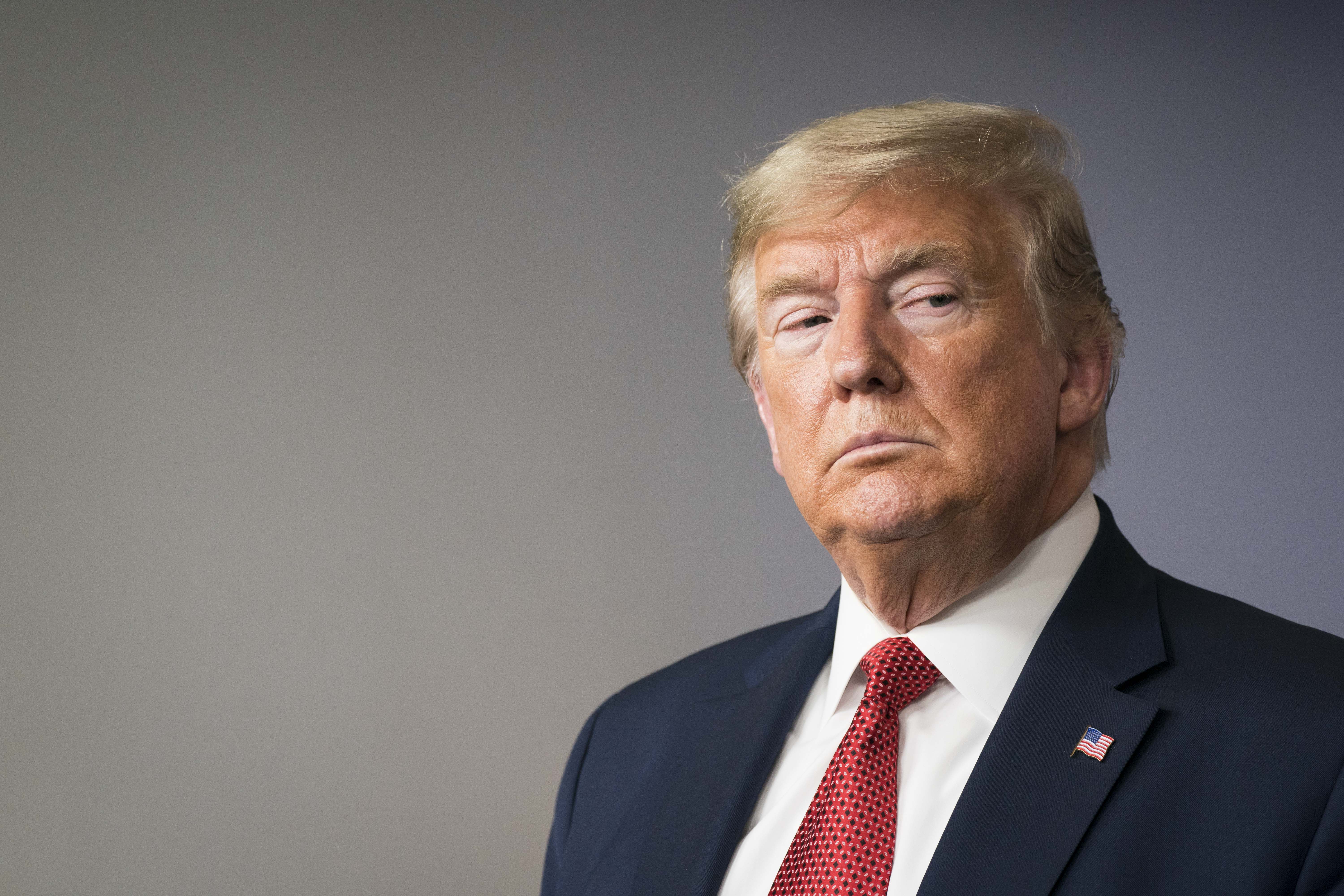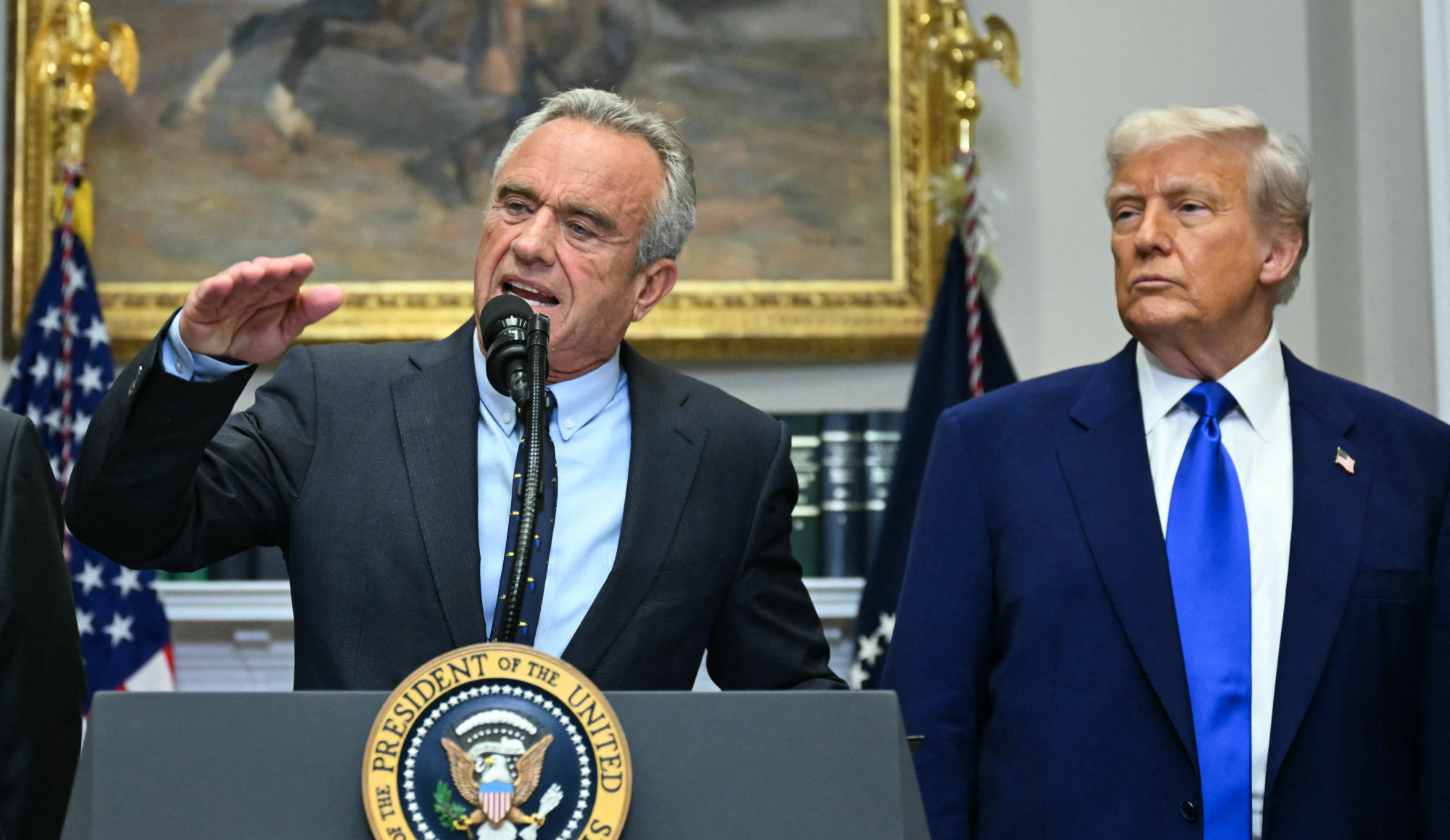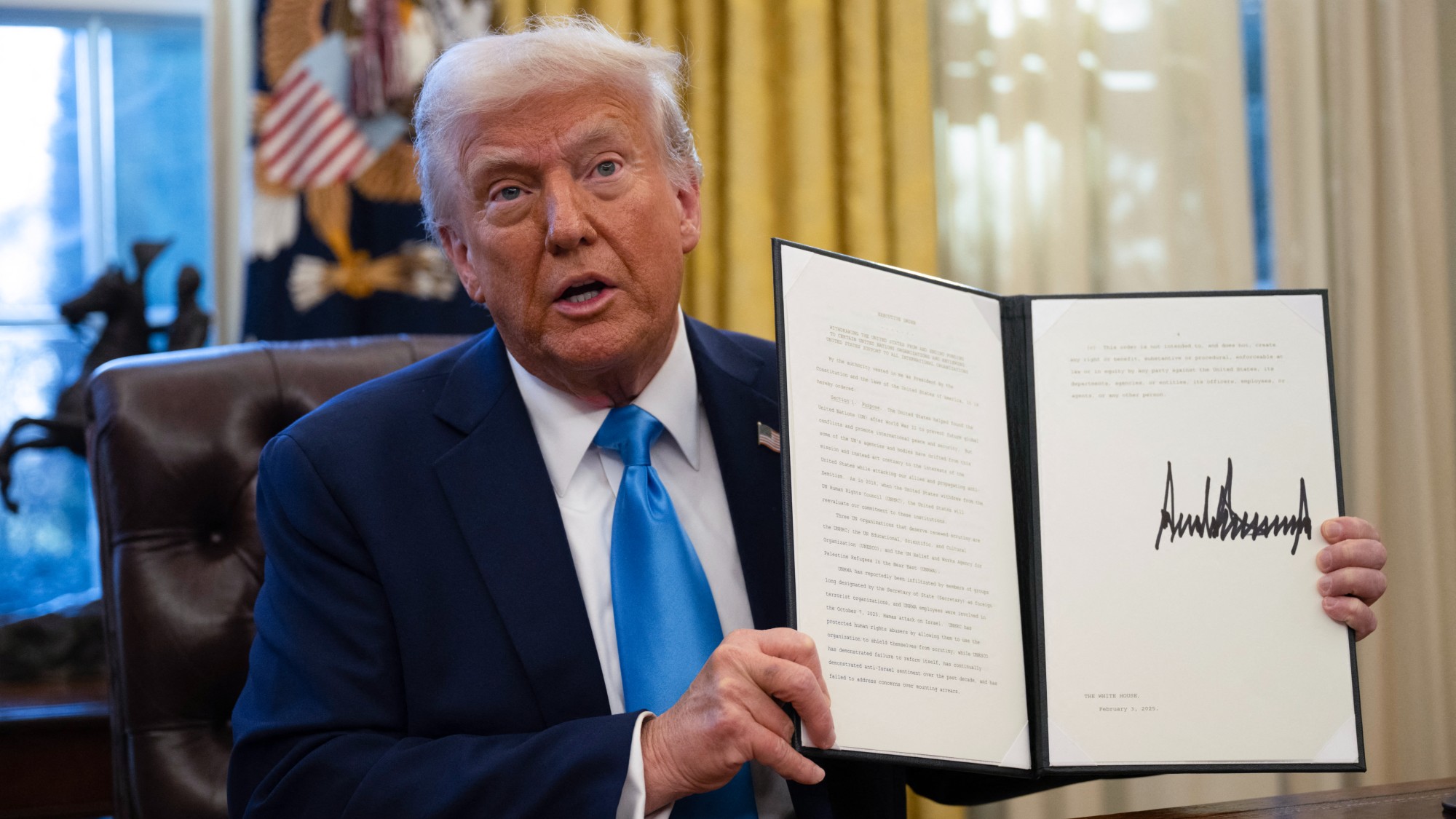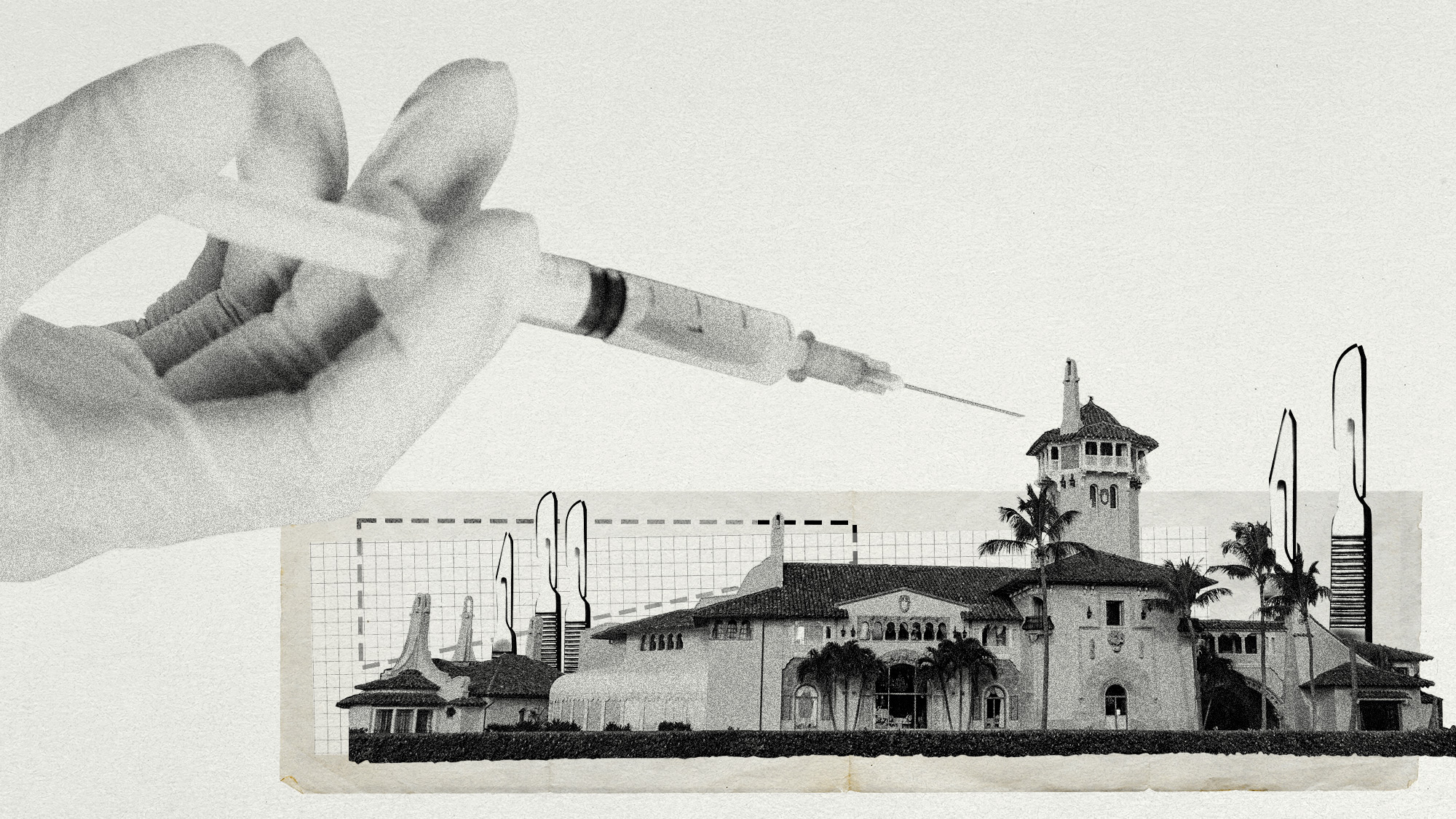Coronavirus: is Donald Trump putting the US at risk?
The president is bucking the advice of health officials, arguing for a quick restart of the economy


A free daily email with the biggest news stories of the day – and the best features from TheWeek.com
You are now subscribed
Your newsletter sign-up was successful
Donald Trump’s reaction to the novel coronavirus outbreak, as it unfolded from foreign menace to rampant pandemic, has been inconsistent, but his approval rating has risen.
The coronavirus crisis is one that forces governments to choose between the outbreak’s containment or the economy’s health, and the former reality TV star has vacillated, reluctant to throw his weight wholly behind one course of action.
Countries with major outbreaks have, so far without exception, resorted to sweeping lockdowns, but in the federal system of the US, where there has been a surge to almost 70,000 cases and more than 1,000 deaths, the response has been more localised, with the extent of the restrictions varying state by state.
The Week
Escape your echo chamber. Get the facts behind the news, plus analysis from multiple perspectives.

Sign up for The Week's Free Newsletters
From our morning news briefing to a weekly Good News Newsletter, get the best of The Week delivered directly to your inbox.
From our morning news briefing to a weekly Good News Newsletter, get the best of The Week delivered directly to your inbox.
Trump hedges
The president seems torn. He was initially a skeptic, comparing Covid-19 to the common flu, but on 11 March he barred travellers from mainland Europe in an Oval Office address that sent the stock market tumbling. After that, he seemed to be willing to accept the strictest measures, on Sunday declaring the country at war “against an invisible enemy”, and himself a wartime president.
On Monday, however, he seemed to change his stance again. “We cannot let the cure be worse than the problem itself,” he said. “Our country wasn’t built to be shut down.” On Tuesday, he said he wanted the country “raring to go” by Easter.
Official government figures on jobless rates in the US are due out today, but the Economic Policy Institute predicts that 3.4 million workers filed for unemployment last week - more than “any prior week in American history”.
A free daily email with the biggest news stories of the day – and the best features from TheWeek.com
Of course, the president is right that this is a terrible price to pay - a point he illustrated idiosyncratically: “You’re going to have suicides by the thousands… Probably and - I mean, definitely - would be in far greater numbers than the numbers that we’re talking about with regard to the virus.”
Weighed against that, a research analysis by Imperial College in London raised the prospect that 2.2 million Americans could die from Covid-19 if the outbreak goes unchecked.
–––––––––––––––––––––––––––––––For a round-up of the most important stories from around the world - and a concise, refreshing and balanced take on the week’s news agenda - try The Week magazine. Get your first six issues free–––––––––––––––––––––––––––––––
The US Senate has now approved a $2trn (£1.7trn) coronavirus disaster aid bill, the largest economic stimulus in US history.
The plan, which is expected to pass the House of Representatives on Friday, includes direct payments of $1,200 to most American adults.
How is Covid-19 affecting US politics?
The cost of an economic shutdown is high, but given every society with a major outbreak has, in the end, chosen to counter the contagion, Trump’s continued hedging risks backfiring, if America is seriously buffeted by Covid-19 - particularly with a presidential election in November looming.
Nevertheless, as things stand, his approval rating is strong. “Forty-nine percent of U.S. adults, up from 44% earlier this month, approve of the job Trump is doing as president,” reports a Gallup poll from Tuesday.
“By calling for the economy to reopen, Trump will put the onus on governors, mayors and CEOs to keep it shut. That way he can seek reelection by saying the recession isn’t his fault,” writes Max Boot in The Washington Post. “But in the process Trump will risk the lives not just of those credulous enough to believe his pronouncements… but of the whole population. It will be much harder to enforce even statewide lockdowns if the president is saying it’s safe to go back to work.”
It remains to be seen if Trump is genuinely committed to keeping the economy open and active, even in the face of a Covid-19 catastrophe, or if he is playing the crisis with a signature spontaneity and reactivity, much as he plays to the crowd at one of his rallies.
In reality, next week he could be leading the all-or-nothing charge against the disease once again.
“If by September Mr. Trump and his team are bringing the U.S. through the threat from this pandemic, he will be re-elected,” argues Daniel Henninger in The Wall Street Journal. “Without a single rally. Rallying a nation is what gets presidents remembered.”
William Gritten is a London-born, New York-based strategist and writer focusing on politics and international affairs.
-
 How Democrats are turning DOJ lemons into partisan lemonade
How Democrats are turning DOJ lemons into partisan lemonadeTODAY’S BIG QUESTION As the Trump administration continues to try — and fail — at indicting its political enemies, Democratic lawmakers have begun seizing the moment for themselves
-
 ICE’s new targets post-Minnesota retreat
ICE’s new targets post-Minnesota retreatIn the Spotlight Several cities are reportedly on ICE’s list for immigration crackdowns
-
 ‘Those rights don’t exist to protect criminals’
‘Those rights don’t exist to protect criminals’Instant Opinion Opinion, comment and editorials of the day
-
 The stalled fight against HIV
The stalled fight against HIVThe Explainer Scientific advances offer hopes of a cure but ‘devastating’ foreign aid cuts leave countries battling Aids without funds
-
 Obesity drugs: Will Trump’s plan lower costs?
Obesity drugs: Will Trump’s plan lower costs?Feature Even $149 a month, the advertised price for a starting dose of a still-in-development GLP-1 pill on TrumpRx, will be too big a burden for the many Americans ‘struggling to afford groceries’
-
 Can TrumpRx really lower drug prices?
Can TrumpRx really lower drug prices?Today’s Big Question Pfizer’s deal with Trump sent drugmaker stocks higher
-
 The new Stratus Covid strain – and why it’s on the rise
The new Stratus Covid strain – and why it’s on the riseThe Explainer ‘No evidence’ new variant is more dangerous or that vaccines won’t work against it, say UK health experts
-
 Why are autism rates increasing?
Why are autism rates increasing?The Explainer Medical experts condemn Trump administration’s claim that paracetamol during pregnancy is linked to rising rates of neurodevelopmental disorder in US and UK
-
 Trump seeks to cut drug prices via executive order
Trump seeks to cut drug prices via executive orderspeed read The president's order tells pharmaceutical companies to lower prescription drug prices, but it will likely be thrown out by the courts
-
 How Trump's executive orders are threatening scientific research
How Trump's executive orders are threatening scientific researchIn the spotlight Agencies are purging important health information
-
 Mar-a-Lago face: has Maga plastic surgery trend peaked?
Mar-a-Lago face: has Maga plastic surgery trend peaked?Under the Radar The must-have look for Trump’s inner circle does not come easy – or cheap – but it may be starting to fall out of favour
